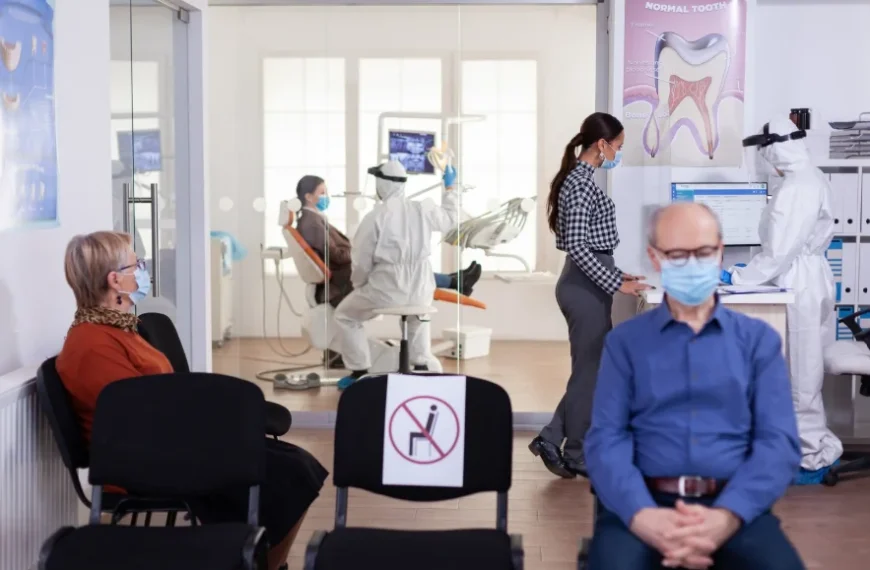A tooth infection is more than just a painful dental problem. It is a serious condition that begins inside the tooth but can spread to the gums, jaw, and even other parts of the body if left untreated. Many people think tooth pain will fade with time, but infections rarely disappear on their own. Recognizing the early signs and knowing how to act can protect not just your teeth but also your overall health.
In this guide, we’ll explore what a tooth infection is, why it happens, its symptoms, treatment options, and how to prevent it. Whether you are dealing with pain right now or simply want to protect your smile, this article covers everything you need to know.
What is a Tooth Infection?
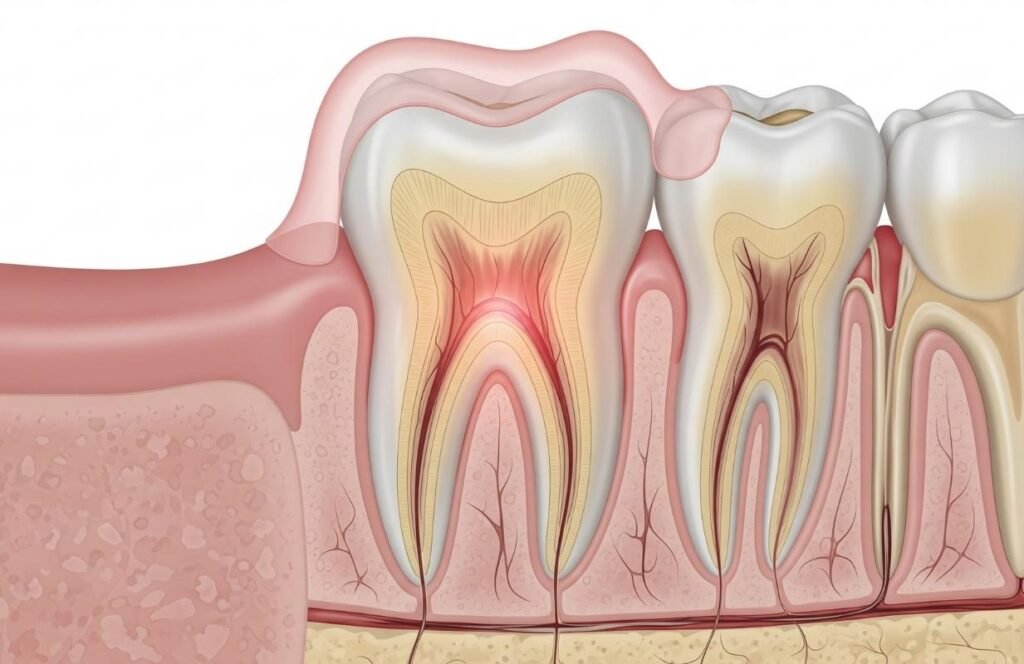
A tooth infection, sometimes called a tooth abscess, happens when bacteria enter the tooth’s pulp chamber. The pulp is the soft inner part of the tooth that holds nerves, blood vessels, and connective tissues. When bacteria reach this sensitive area, the body responds with inflammation and pus formation.
There are different types of tooth infections:
- Periapical abscess: Starts in the tip of the root when decay spreads deep into the pulp.
- Periodontal abscess: Forms in the gums next to the root of the tooth, often linked to gum disease.
- Gingival abscess: Limited to the gum tissue and does not affect the tooth directly.
No matter the type, the infection causes pain, swelling, and discomfort. Without treatment, it can move beyond the tooth and lead to severe health problems.
Why Tooth Infection is Dangerous
At first, a tooth infection may seem like a minor issue. But the reality is different. The bacteria that cause the infection can spread through the bloodstream and reach vital organs. In severe cases, untreated infections can lead to:
- Bone loss around the tooth root
- Damage to nearby teeth
- Sinus infections
- Sepsis, a life-threatening infection
This is why dentists stress the importance of prompt treatment. A tooth infection should never be ignored, no matter how small it may seem at first.
Causes of Tooth Infection
To understand how to prevent or treat a tooth infection, it’s important to know the root causes. Here are the main reasons people develop infections:
Tooth Decay
Tooth decay begins when plaque, a sticky film of bacteria, builds up on the teeth. These bacteria feed on sugar and produce acids that eat away at the enamel. Once a cavity forms and deepens, bacteria can reach the pulp and cause infection.
Cracked or Chipped Teeth
A crack or break in the enamel is like an open door for bacteria. Even small cracks, often unnoticed, can let bacteria in and start an infection.
Gum Disease
Advanced gum disease, also known as periodontitis, can lead to infections spreading from the gums to the roots of the teeth. Swollen or bleeding gums are early warning signs.
Weakened Immune System
People with diabetes, autoimmune conditions, or those undergoing certain treatments may be more prone to infections. The body struggles to fight bacteria, making infections easier to develop.
Poor Oral Hygiene
Not brushing or flossing properly allows plaque to build up. Over time, this can lead to cavities and gum disease, increasing the risk of tooth infection.
Symptoms of Tooth Infection
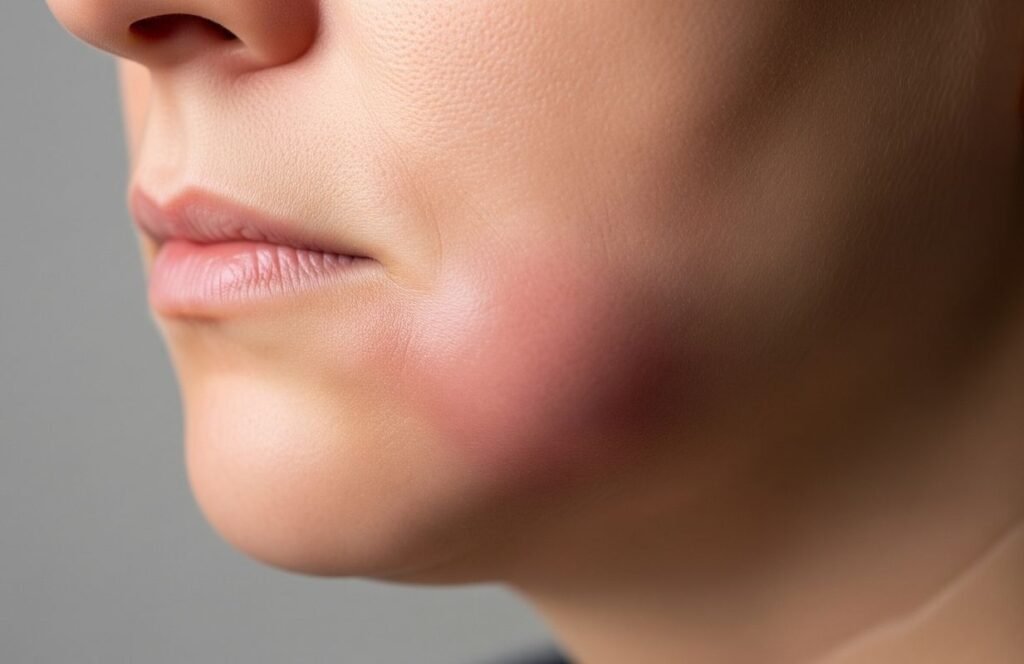
Recognizing the early symptoms of a tooth infection can save you from severe complications. Symptoms usually start mild and worsen over time if untreated.
- Persistent, throbbing toothache that may spread to the jaw, ear, or neck.
- Sensitivity when eating hot, cold, or sweet foods.
- Swelling in the face, gums, or neck.
- Red, tender gums or a pimple-like bump on the gum.
- Bad taste in the mouth due to pus drainage.
- Bad breath that does not go away even after brushing.
- Difficulty chewing, swallowing, or opening the mouth.
- Fever and general weakness if the infection spreads.
If you notice several of these symptoms together, seek dental care immediately.
How a Tooth Infection is Diagnosed
Dentists use a mix of methods to diagnose a tooth infection:
- Visual examination: Looking for swelling, redness, or pus.
- X-rays: Detecting hidden cavities, abscesses, and spread to the jawbone.
- Sensitivity tests: Checking how the tooth reacts to pressure or temperature.
Accurate diagnosis helps the dentist decide the best treatment method.
Treatment for Tooth Infection
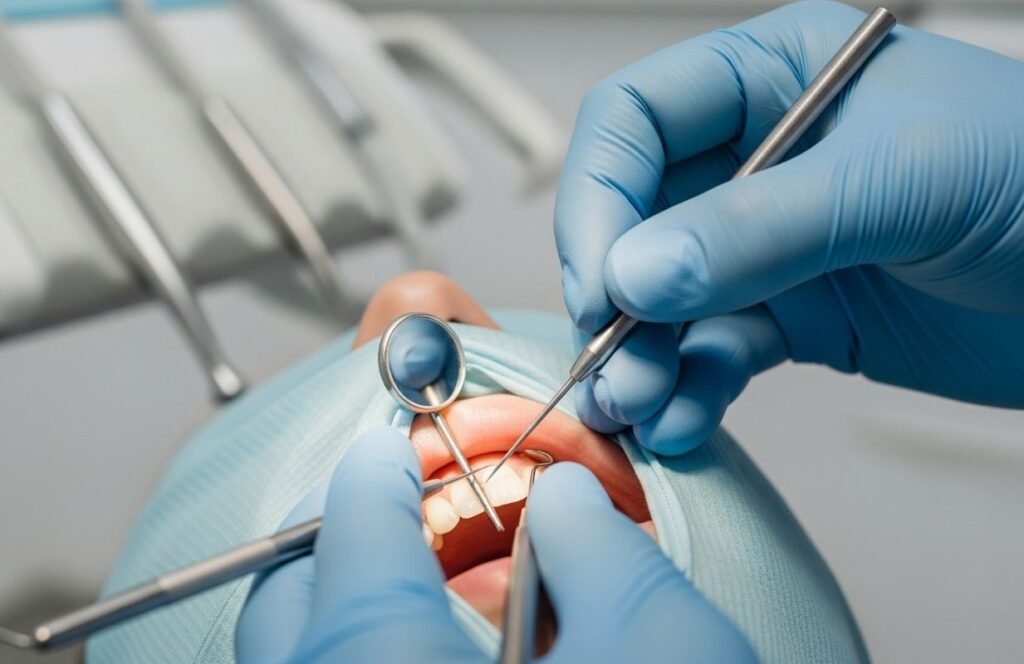
The good news is that modern dentistry offers effective ways to treat tooth infections. Treatment depends on the severity of the infection and the condition of the tooth.
Antibiotics
If the infection is still local and has not spread widely, antibiotics may be prescribed. They help control bacterial growth but are usually combined with other treatments. Antibiotics alone rarely cure a severe tooth infection.
Drainage of Abscess
The dentist may create a small cut in the gum or tooth to drain pus. This reduces pain and pressure but is usually followed by further treatment.
Root Canal Treatment
A root canal is a common treatment for infected teeth. The dentist removes the infected pulp, cleans the inner tooth, and seals it to prevent reinfection. In many cases, the tooth is also capped with a crown for protection.
Tooth Extraction
When a tooth cannot be saved, extraction becomes the only option. The dentist removes the tooth and recommends replacement options such as implants or bridges to maintain oral function.
Pain Management
Over-the-counter pain relievers can help manage discomfort, but they should never replace professional care. They only reduce symptoms, not the infection itself.
Home Care for Tooth Infection (Temporary Relief)
While only a dentist can fully treat a tooth infection, some home remedies may provide short-term relief until you see a professional:
- Rinse with warm salt water to reduce swelling.
- Use a cold compress on the cheek to ease pain and swelling.
- Keep your head elevated while sleeping to limit pressure buildup.
- Avoid very hot, cold, or sweet foods that trigger pain.
These methods may reduce discomfort, but they are not a cure. Always follow up with a dentist.
How to Prevent Tooth Infection
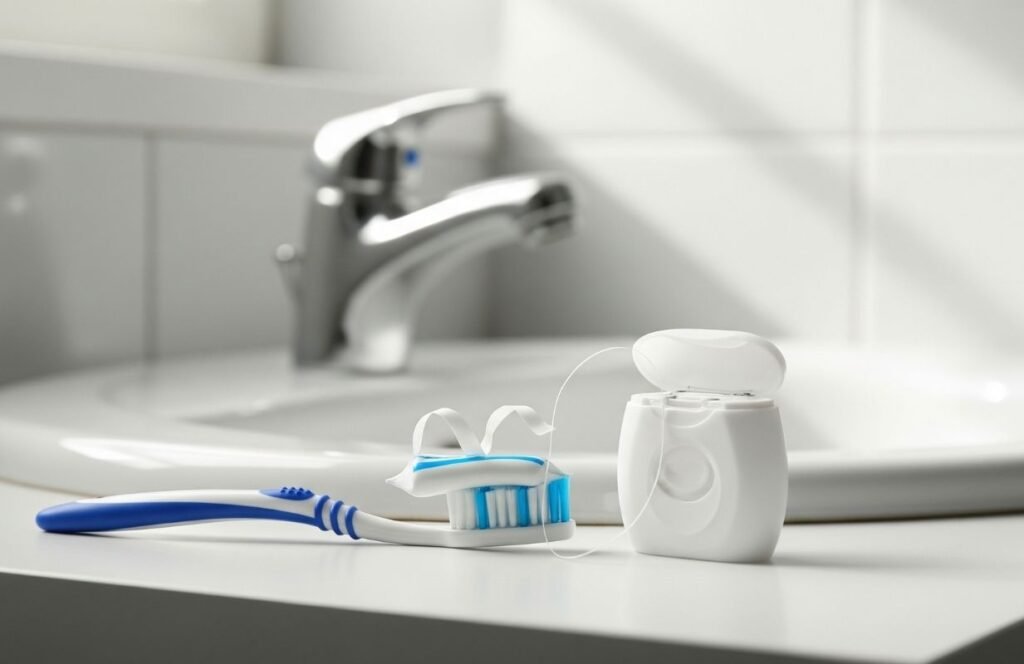
Prevention is always better than cure. With good oral care, many infections can be avoided:
Daily Oral Hygiene
Brush twice daily with fluoride toothpaste and use a soft-bristled toothbrush. Floss once a day to remove plaque between teeth.
Regular Dental Visits
Routine checkups allow dentists to catch problems early. Professional cleanings also remove plaque and tartar that brushing cannot.
Healthy Diet
Limit sugary snacks and drinks, which fuel bacteria. Instead, eat foods rich in calcium and vitamins that strengthen teeth.
Protect Teeth from Damage
If you play sports, wear a mouthguard. Avoid chewing hard items like ice or pens that can crack teeth.
Manage Health Conditions
People with diabetes or other conditions should monitor their health closely. Keeping blood sugar under control reduces infection risk.
What To Do If You Suspect a Tooth Infection: Step-by-Step Guide
- Pay attention to symptoms: Persistent pain, swelling, or fever should not be ignored.
- Avoid self-treatment: Painkillers and home remedies may ease pain but will not cure infection.
- Contact a dentist quickly: The earlier you seek treatment, the easier it is to save the tooth.
- Follow prescribed care: Take antibiotics as directed and attend all follow-up visits.
- Maintain oral hygiene after treatment: Keep the mouth clean to prevent reinfection.
Acting fast is the key to stopping a tooth infection before it spreads.
Conclusion
A tooth infection is not just a dental issue—it’s a health risk. From tooth decay to gum disease, many factors can cause infections. The symptoms, from throbbing pain to swelling, are clear warning signs that you need immediate care. Treatments like root canals and antibiotics can stop the infection, but prevention is always the best approach.
By brushing, flossing, eating well, and visiting your dentist regularly, you can protect yourself from painful and dangerous infections. Remember, ignoring a tooth infection is never safe. At the first sign of trouble, act quickly for a healthier smile and body.
FAQs
Can a tooth infection go away on its own?
No. A tooth infection will not disappear without treatment. Pain may reduce temporarily, but bacteria remain active and can spread.
How long can I wait to treat a tooth infection?
You should not wait. Infections can spread quickly to other parts of the body. Early treatment is easier and safer.
Are antibiotics enough to cure a tooth infection?
Antibiotics help control bacteria, but they rarely cure severe infections alone. Most cases require drainage, root canal therapy, or extraction.
Can a tooth infection make me sick?
Yes. Infections can cause fever, swollen lymph nodes, and general weakness. In serious cases, bacteria can spread to vital organs.
How do dentists treat a tooth infection?
Dentists may use antibiotics, drain the abscess, perform a root canal, or extract the tooth. The treatment depends on the severity.
How can I prevent a tooth infection?
Good oral hygiene, regular dental checkups, healthy eating, and protecting teeth from injury can prevent most infections.
Is tooth infection an emergency?
Yes, especially if you have fever, swelling in the face or neck, or trouble breathing. Seek immediate care in such cases.




